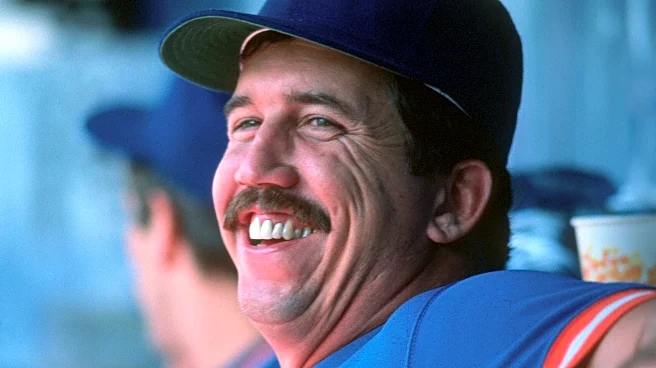Former Mets manager Davey Johnson, who managed the team from 1984 through early in the 1990 season, died today at the age of 82. No cause of death was immediately announced. Johnson, the most successful
Mets manager of all time with a .588 winning percentage, oversaw the second golden era of Mets baseball.
Johnson played in the majors from 1965 to 1978, winning two world series with the Orioles, with stops in Atlanta, Philadelphia, Chicago, and Yomiuri along the way. He was a four-time All-Star and three-time Gold Glove winning second baseman.
After managing the Miami Amigos for 72 games in 1979, the Inter-American league folded and Johnson found himself without a job. In 1981, the Mets hired Johnson to helm the Double-A Jackson Mets, and one season later he was promoted to manage the Triple-A Tidewater Tides. Both of those teams had winnings records under Johnson, and in 1984, he took over the big league club.
The Mets of Johnson’s tenure will always be remembered for the 1986 World Series championship, but until he was fired in 42 games into the 1990 season, Johnson’s teams never had a losing record. Twice they won 100 or more games (1986 [108] and 1988 [100]), they never finished lower than second place in the National League East, and only won less than 90 games in his final full season, when they won 87. He was also considered a pioneer of sabermetrics in his time with the Mets, long before ideas like platooning and on-base percentage gained much truck with the larger baseball community.
Johnson was well-liked by his players, who played hard for him, and who he let be their own people, once claiming “As long as they won for me on the field, I didn’t give a flying fuck what they did otherwise”. His Mets tenure came to an end because of friction with General Manager Frank Cashen, which began in his first season as manager, when Cashen didn’t want to bring up Dwight Gooden to start the year with the Mets. As Johnson told Bill Ladson of MLB.com in 2023:
The problem was, Cashen didn’t see talent on the level that I saw it, whether it was Lenny Dykstra or Kevin Mitchell — guys I thought were instrumental to our club. He traded them all. [Cashen] might have disagreed with what I thought, but the manager lives with the players, knows them. The manager hears the heartbeat. I had Dwight Gooden when he was 18. He was from Single-A Lynchburg. He came over to [Triple-A] Tidewater for two weeks. At 18, he could paint [the corners]. He knew the idea of keeping the ball down.
After leaving the Mets, Johnson managed the Reds but, after disagreements with then owner/known bigot Marge Schott, he left after taking the Reds to the playoffs in 1995. Johnson then managed the Orioles to two straight playoff berths but, again, conflicts with upper management led to his resigning the role on the same day he was named American League Manager of the Year in 1997. Two years later, Johnson managed the Los Angeles Dodgers for two seasons in 1999 and 2000, but left the Dodgers after the 2000 season.
After managing a number of teams in international tournaments, Johnson joined the Washington Nationals front office. After Jim Riggleman resigned in June of 2011, Johnson stepped in and managed the team. In 2012, he led the Nats to their first division title since moving to Washington (and first overall since 1981), and he was named National League Manager of the Year for 2012. After failing to make the postseason in 2013, Johnson retired.
A member of both the Mets and Orioles Halls of Fame, Johnson only managed one team to a full-season losing record (the 1999 Dodgers), and brought four of the five clubs he managed to the playoffs. Johnson is 26th all-time in terms of winning percentage with a .562 mark (1,372 wins and 1,071 losses).
For Mets fans who were too young for the magic of the late 60s and early 70s, Johnson was one of the key players, along with Cashen, who shepherded the Mets back to a winning franchise in the mid-80s. His legacy will always be a part of the Mets, for as long as the team exists.
We send our condolences to Johnson’s family, friends, colleagues, former teammates, and fans.










